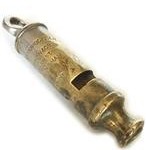
Does the Phrase Qui Tam Sound Familiar? This 1863 Law Pays Hundreds of Millions of Dollars to Whistleblowers Each Year
Hundreds, if not thousands of companies, cheat Uncle Sam everyday. Those folks hurt taxpayers and the legitimate businesses that follow the rules. Why should a few criminals get rich while hard working business owners get screwed?
Many business owners feel a general feeling of helplessness when confronting these situations. You can write letters or call regulators but often nothing happens. There is a solution, however, and one that pays cash awards too.
The federal False Claims Act was enacted by Congress during 1863. Abraham Lincoln was President and America was enmeshed in the Civil War. Then, just like now, dishonest folks were ripping off the government. Back then it was lame mules, gunpowder laced with sawdust and wagons with bad wheels. The government didn’t have the money to pursue these fraudsters so it passed a law allowing private citizens to do so.
These lawsuits are called qui tam claims because they are filed in the name of the government. The term “qui tam” is the short form of a Latin phrase meaning “in the name of the King.” The private citizen is allowed to file a lawsuit in the name of the sovereign.
Fast forward to the 21st century and the fraudsters are still at it. Criminals are creative and constantly find new ways to rip off the government and fellow taxpayers.
How does this impact private businesses? If you are trying to compete with others and your competitors are breaking the law, competition becomes impossible.
Qui tam actions have to be based on inside or original source information. Most whistleblowers are past or present employees of the wrongdoer but competitors of the wrongdoer can qualify as long as they have inside information.
Common examples of businesses that have filed successful qui tam actions include:
- Ambulance company owner with knowledge that his competitors were cheating Medicare. Because they were paying illegal kickbacks and getting more money than they should from the government, his company couldn’t compete.
- Electrode manufacturer with knowledge that a competitor was illegally importing cheap electrodes from China but not paying customs duties. Without the duties, the wrongdoer was able to sell his products for less.
- Government contractor with knowledge that a competitor was using cheap Chinese steel on a federally funded highway bridge project. (Federal Buy American laws say that contractors must use American steel. When a vendor illegally substitutes lower priced steel it can underbid competitors.)
- Small business owner certified for set aside contracts based on combat disability status with knowledge that a large competitor created sham company solely to gain more business at the expense of disabled veterans.
The victims in all these scams are both taxpayers and legitimate businesses simply hoping to compete on a level playing field.
Qui Tam Actions and Leveling the Playing Field
Most businesses that feel cheated report illegal behavior to the authorities. They think that is all they can do. Unfortunately, it can take years for anyone to take action, if they take action. At best, the government can stop the fraudster but that does little to make up for the damage already done.
A qui tam action under the False Claims Act may be the difference and may be the quickest route to a level playing field.
Once filed, the government has 60 days to investigate the charges brought in the complaint. That puts these complaints at the top of the list. Because a lawsuit has been filed in the government’s name, the government must act.
Ultimately, after investigation, the government can intervene and take over the suit or allow the whistleblower’s own lawyer to prosecute. If nothing else, qui tam actions give some control to the whistleblower.
The biggest benefit may be the large cash awards available under the False Claims Act. Whistleblowers are entitled to between 15% and 30% of whatever the government collects. Awards are often in the millions of dollars. (In 2014, the Justice Department handed out over $435 million in qui tam awards!)
Prosecuting a qui tam claim can be expensive but most False Claims Act lawyers charge on a contingent fee basis. Typically, you don’t have to pay a thing unless the case is successful and you earn an award.
No one wants to sue their competitors but when your competitor is acting illegally and hurting you, your family, your business and your employees, you may not have any other choice.
Need more information? Give us a call. Our whistleblower clients have earned over $100 million. We believe whistleblowers are the new American heroes and are proud to help them.
For more information, read our cornerstone post on qui tam lawsuits and download our 11 Step Guide to Blowing the Whistle. Ready to see if you have a case? Contact attorney Brian Mahany at or by telephone at (direct). All inquiries are protected by the attorney-client privilege and kept completely confidential.
MahanyLaw – America’s Whistleblower Lawyers

